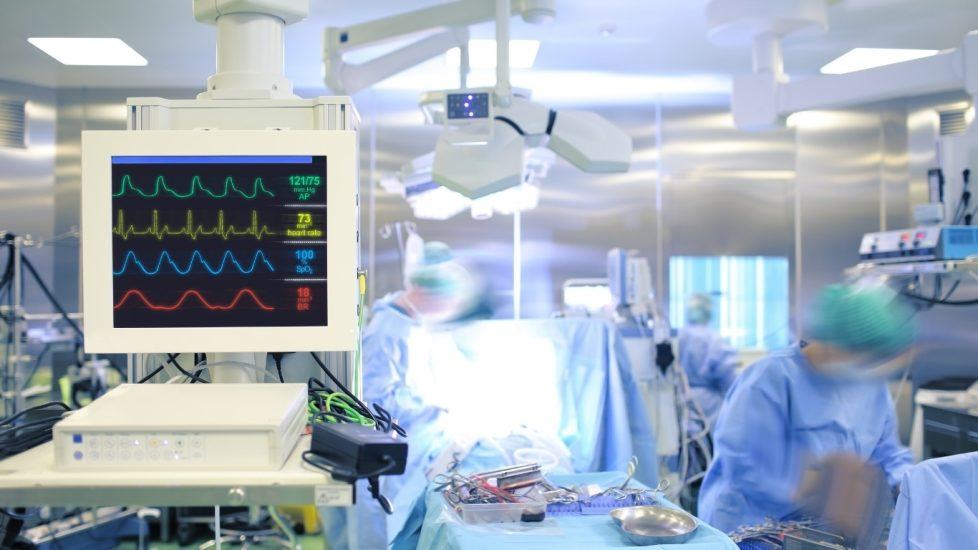Your cart is currently empty!
On March 2, 2022, the U.S. Food and Drug Administration (FDA) Device Good Manufacturing Practice Advisory Committee will meet to discuss and make recommendations on the current good manufacturing practice requirements for medical devices as part of an ongoing effort to more closely align U.S. Quality System requirements with international standards. Specifically, the FDA is proposing to amend the current 21 CFR part 820 – Quality System Regulation through incorporating, by reference, the Quality Management System (QMS) requirements of ISO 13485:2016. In addition, the FDA advisory committee is proposing to retain or modify certain requirements of the current part 820, including a change in the title of the regulation. The result will be referred to as the “Quality Management System Regulation (QMSR).”
Background
In 2018, the industry was notified that the FDA began work on a plan to harmonize its rule on Quality Management Systems through standardization with ISO 13485:2016—the first change to 21 CFR Part 820 since 1996. The proposed changes were scheduled for release in 2019, but due to unforeseen delays, medical device stakeholders received their first look on February 23, 2022, when the proposed rule was published, found here.
Current Situation
In early 2022, the FDA submitted the proposed rule to the Office of Information and Regulatory Affairs (OIRA) for review, which was completed ahead of schedule. The FDA has kept the momentum by quickly organizing an Advisory Committee meeting on March 2, 2022 to discuss the proposed rule. This pace is promising and certainly contrasts with the momentum previously observed from the government agency.
This meeting is open to the public and interested persons may submit questions, information or views prior to the meeting. For information regarding the Device Good Manufacturing Practice Advisory Committee meeting, please visit the FDA website at: https://www.fda.gov/advisory-committees/advisory-committee-calendar/march-2-2022-device-good-manufacturing-practice-advisory-committee-meeting-announcement-03022022?utm_medium=email&utm_source=govdelivery.
Proposed Rule
As previously stated by the FDA, the purpose of the QMSR rulemaking is to simplify and streamline the FDA regulation by amending part 820 (21 CFR 820 – Quality System Requirements) to incorporate, by reference, ISO 13485:2016. The 2016 update of ISO 13485 brought a number of requirements in line with the QSR and FDA’s proposed plan is to utilize ISO 13485 requirements while withdrawing the majority of the part 820 requirements. However, there are still differences and where necessary, the FDA will propose requirements that supersede the correlating requirement in ISO 13485 (some identified areas of variations include: definitions, labeling and risk management).
The FDA also recognizes that there are key elements of ISO 13485:2016 that may not be explicit in the current QSR; in particular, the application of a risk-based approach in establishing and maintaining a QMS. Although the current QSR doesn’t specifically define risk-based requirements (other than in Design Controls), the FDA acknowledges that risk-based requirements of ISO 13485 are consistent with their expectations.
In all, the FDA is further committing to its goal to simplify and streamline the current QSR, leading to many benefits for U.S. medical device Sponsors and manufacturers.
Next Steps
This QMSR is a proposal and not yet mandated by law, but once changes are finalized and published in the Federal Register, there will be a transition time prior to the conformity date (possibly one year). At the current time, it is not too early for manufacturers and suppliers to start taking action, and NAMSA recommends the following to remain proactive in this effort:
- Stay aware and informed of the FDA plan for QSR changes.
- If ISO 13485:2016 is new for your organization, familiarize and train your team on the standard.
- If you have yet to address ISO 13485:2016 in your Quality Management System (QMS), now is the time to assess your QMS and identify gaps.
- Take a closer look at risk management and make sure it is integrated throughout your organization’s QMS and the total lifecycle of your product.
- When making changes to your QMS, always work to a documented plan; now is the time to start drafting that plan!
- Assure that your critical suppliers are aware of the FDA plans and are adjusting their systems to align to your future QMS needs.
How Can NAMSA Help?
The criticality of the development, implementation, adherence and continuous improvement of a compliant QMS cannot be overstated. Not only are these key processes in driving company value, but more importantly, they help ensure patient safety and the delivery of high-quality products to those that need them most. NAMSA’s global Quality Consulting Team can assist you to meet the changing QMS landscape head-on while maintaining compliance through:
- Gap Assessments: Complete a full gap assessment to ISO 13485:2016, FDA 21 CFR part 820 and/or the proposed FDA Quality Management System Regulation (QMSR)
- QMS Transition Plans: Assist in the development plan for transition to the QMSR and resolve any identified gaps
- Inspection Readiness: Conduct audits or mock inspections of QMS to applicable standards and regulations
- Risk Management Programs: Review/assess existing procedures, plans, reports and records; develop and implement plans, risk analyses and reports
- Supplier Quality Audits: Audit suppliers for quality compliance to quality standards and regulations
To learn more about NAMSA’s full quality service offerings, please visit: https://namsa.com/services/regulatory/. You may also visit https://namsa.com/namsa-expertise/subject-matter-experts/ to get in touch with our leading quality experts.

